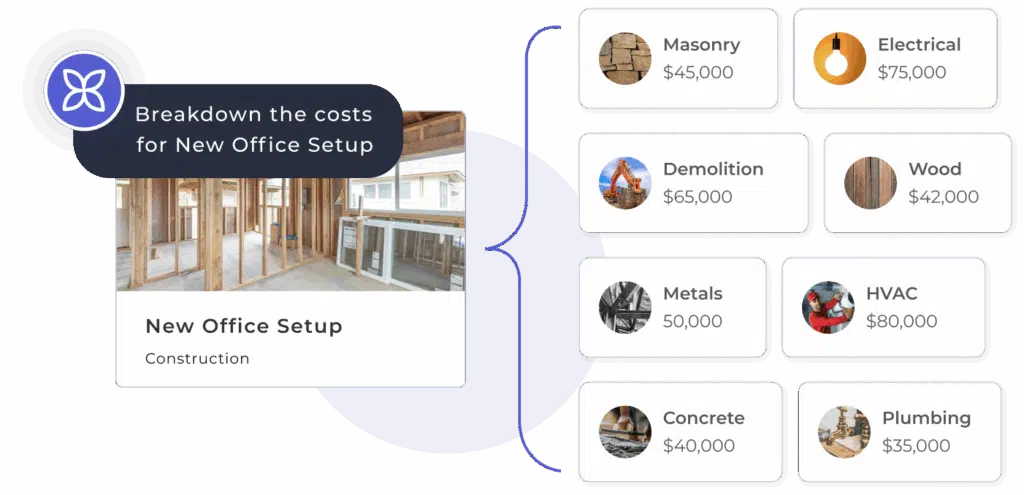Estate vendor coordination made simple represents the evolution from traditional coordination methods to AI-powered platform solutions that enhance operational efficiency. Modern estate managers face the challenge of coordinating diverse vendor relationships while maintaining service excellence across multiple properties.
The estate management industry has historically relied on personal relationships, phone communications, and email coordination to manage vendor networks. According to recent industry analysis, estates implementing preventive maintenance strategies experience 40% fewer emergency repairs and significantly improved vendor coordination efficiency. Additionally, more than 80% of property managers are involved in the coordination or performance of maintenance/repairs, highlighting the critical importance of effective vendor coordination systems. Modern coordination tools enable estate managers to optimize vendor relationships while maintaining the personal touch that defines luxury service.
Understanding Vendor Technology Readiness for Estate Coordination
Effective estate vendor coordination made simple requires understanding the technology readiness spectrum among estate vendors and subcontractors. Estate managers must develop implementation strategies that work with existing vendor capabilities while encouraging gradual adoption.
Technology-Forward Vendors: Modern service providers may already use digital platforms but often resist adopting new systems. Even tech-savvy vendors frequently decline platform adoption due to existing workflow investments and training concerns.
Traditional Service Providers: Established vendors typically reject digital platform suggestions, preferring familiar phone and email communication. Most express concerns about complexity, cost, and time investment required for new technology adoption.
Technology-Resistant Contractors: Specialized craftspeople and legacy service providers almost universally decline platform participation, viewing technology as unnecessary complications to established business practices.
Estate Vendor Coordination: Overcoming Resistance Strategies
Most vendors will decline platform participation initially. Estate managers must develop realistic expectations while implementing strategies that encourage gradual adoption.
Educational Approach: Address vendor concerns directly. Explain how platforms eliminate duplicate data entry and provide instant work history access. Demonstrate time savings: “Instead of three phone calls to schedule maintenance, submit one request and get instant confirmation.”
Value Proposition: Focus on vendor benefits like automated invoicing, digital work confirmations, and photo documentation. Emphasize reduced administrative burden and faster payment processing.
Incentive Strategies: Offer preferred scheduling slots, faster payments, or premium projects for participating vendors. Some managers provide tablets or training support.
Accepting “No” Gracefully: When vendors decline, maintain relationships while coordinating through their preferred methods. This preserves partnerships while keeping doors open for future adoption.
Estate Vendor Coordination for Non-Participating Vendors
Even when vendors refuse platform adoption, estate managers can maintain complete operational oversight. Modern platforms enable comprehensive vendor management regardless of participation levels.
Independent Task Creation: Create schedules, appointments, and timelines using traditional vendor communication. Input all communications, confirmations, and specifications directly.
Complete Documentation: Upload photos, invoices, receipts, and reports manually after completion. Add notes about quality, timing, costs, and issues encountered.
Expense Tracking: Record all vendor expenses, categorize costs by property and service type. Photograph invoices supporting estate maintenance cost control strategies that demonstrate value to principals.
Communication Logs: Document all vendor communications including calls, emails, and discussions. Record responses, scheduling changes, and delivery updates.
This ensures nothing falls through the cracks while respecting vendor preferences and maintaining relationships.
Related Estate Management Challenges
Estate vendor coordination is just one piece of comprehensive estate management. Estate managers also face challenges with staff scheduling across multiple properties, managing principal expectations during vendor transitions, and maintaining detailed inventory records for insurance and security purposes. Effective emergency response protocols require seamless vendor coordination alongside comprehensive maintenance planning.

Estate Vendor Coordination Technology Features
Modern estate management platforms provide comprehensive vendor coordination capabilities that streamline operations while maintaining service quality standards. AI-powered platforms like EstateSpace work together to create seamless vendor relationships while providing complete operational transparency and predictive insights.
Advanced platforms integrate vendor scheduling, communication, documentation, and financial tracking into unified workflows that eliminate coordination gaps. Smart notification systems ensure timely communication while automated reporting provides principals with comprehensive service visibility. Artificial intelligence enhances these capabilities by predicting maintenance needs, optimizing vendor scheduling, and identifying cost-saving opportunities before issues arise.
Platform Capabilities:
- AI-powered vendor scheduling with staff coordination across multiple properties
- Intelligent communication tools including messaging and document sharing
- Predictive service documentation with inventory tracking capabilities
- Smart financial tracking integration supporting budget justification presentations to principals
Estate Vendor Coordination Implementation Strategies
Phased Implementation:
- Phase 1: Internal staff adoption and vendor documentation
- Phase 2: Willing vendor onboarding with incentives
- Phase 3: Hybrid workflows for all preferences
- Phase 4: Complete integration with reporting
Timeline Expectations: Expect 6-12 months for meaningful adoption. Focus initially on internal efficiency while building vendor confidence.
Success Measurement: Track benefits through internal metrics rather than adoption rates. Measure documentation completeness, expense accuracy, and response improvements.
Estate Vendor Coordination Success Metrics
Effective estate vendor coordination generates measurable outcomes that demonstrate value and identify improvement opportunities.
Operational Metrics: Response time improvements, scheduling efficiency gains, communication clarity, and service quality consistency across vendor relationships.
Financial Metrics: Cost reduction analysis, budget accuracy improvements, emergency expense reduction, and vendor performance ROI calculations.
Beyond vendor coordination, successful estate management requires AI-powered solutions for staff scheduling, inventory management, and maintenance cost control. Platforms like EstateSpace address these challenges through unified oversight that enhances service quality while reducing administrative burden through intelligent automation.
What’s Next: Expanding Excellence
Master vendor coordination first, then explore how integrated platforms streamline staff management, inventory tracking, and cost analysis for complete operational excellence. Technology adoption enables estate managers to deliver superior service while advancing their careers.
Transform your vendor coordination approach through strategic digital adoption and collaborative communication strategies.
Discover how EstateSpace can streamline your vendor coordination and enhance your operational excellence through AI-powered estate management solutions.
Summary: Estate vendor coordination made simple empowers operational excellence through strategic technology adoption that accommodates diverse vendor capabilities while delivering measurable improvements in coordination efficiency and service quality.



